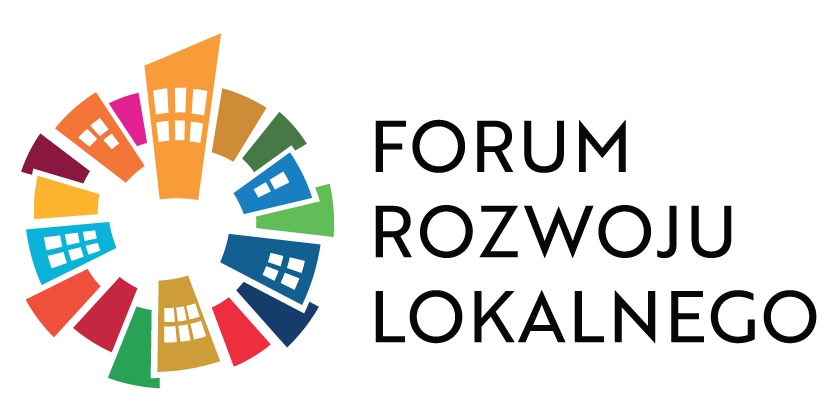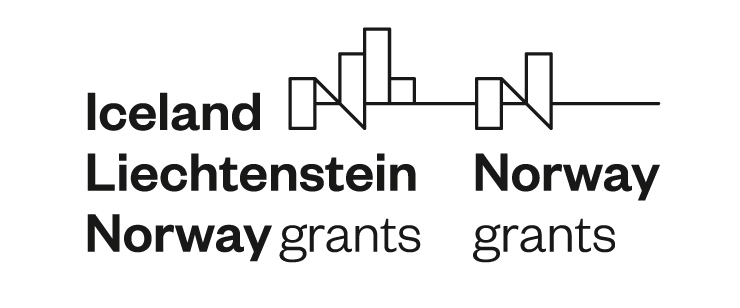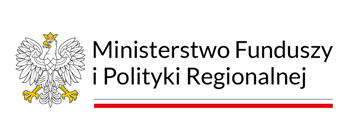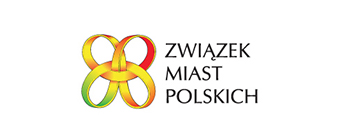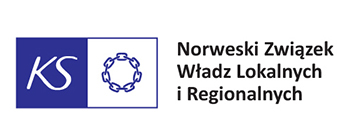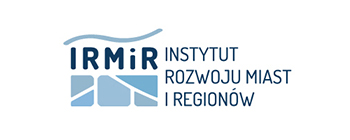The “Local Development” Programme coincided with a four-year advisory-and-training project, the largest endeavour addressing local governments in Poland to date, titled “Building Institutional Capacity of Small- and Medium-Sized Cities and Towns in Poland to Implement Efficient Local Development Policies”. The Association of Polish Cities was the designated Programme Operator, implementation partners including KS (Norwegian Association of Local and Regional Authorities), OECD, and Institute of Urban and Regional Development.
The Association has done more than co-author the project: it has been supporting participant cities and towns since 2020, the number of municipalities and forms of assistance varying from phase to phase. Throughout that time, aid had evolved beyond actual (advisory, educational, implementation) support offered to Beneficiary Cities and Towns into an opportunity to gain extraordinary experience, both in terms of tools and mechanisms of providing municipalities with effective support, and the chance to observe gradual yet consistent institutional change in cities and towns themselves.
The Programme finale is a time of summaries and early conclusions. The final Local Development Forum seminar held on March 7th was titled “Working Together to Boost the Institutional Capacity of Small- and Medium-Sized Cities and Towns in Poland with Intent to Implement Efficient Local Development Policies”.
Meeting participants – representatives of cities and towns, Association of Polish Cities municipal advisors, “EMPIRIAE” Experience Exchange Network leaders – made a first-time attempt to summarise all effects and outcomes of the project for local governments, the Ministry as the implementing institution, and the Association of Polish Cities as an institution providing advisory services to participating municipalities.
Twenty-nine cities and towns ultimately took part in the Programme over the past two years. Fifty-five applicants made it to the previous stage, the option of joining the competition for development project funding originally offered to 255 cities and towns.
“These five years were a time of really hard work,” said Predefined Project Manager Tomasz Potkański during the 48th Local Development Forum seminar. Hard work apart, Kamil Wieder, Head of the Department of Supporting Local Government Units at the Ministry of Development Funds and Regional Policy, emphasised two other project activity qualities: “Local Development” Programme participants getting to know each other and building mutual relations.
“The Local Development Forum itself was an essential component of these activities, a major instrument we managed to develop with intent to support regular meetings and discussions of matters pivotal to the local government,” he accentuated.
Meetings revolved around a broad spectrum of topics: technical and technological issues to social and infrastructural themes. The Local Development Forum is now a brand firmly established on the local government data exchange market. The Forum was about more than expert interventions or presentations, extending into the realm of top-notch municipal case studies and good practices. Many of the debated topics had been tabled by local governments themselves.
Mostly held online, Local Development Forum seminars were attended by a total of nearly 10,000 individual participants. Nearly 700 persons chose to attend face-to-face meetings whenever feasible.
How the Association supported cities and towns
Project Manager Tomasz Potkański summarised the “Building Institutional Capacity of Small- and Medium-Sized Cities and Towns in Poland to Implement Efficient Local Development Policies” endeavour from the vantage point of the Association of Polish Cities. The programme attached equal importance to the respective investment and institutional development components. The Association assisted cities and towns in drafting competition applications at the funding application and project delivery stages, having spent considerable time building a team of specialists and advisors, a major resource today.
At the third and final stage, the 29 cities and towns received ca. PLN 16 million each for the implementation of individual development projects.
Individual (strategic and substantive) advisory services provided to cities and towns at the project delivery stage notwithstanding, the Association of Polish Cities organised dozens of workshop and training sessions over the past five years. It joined forces with the Institute of Urban and Regional Development in developing a strategic development governance tool. Notable key project activities include the “EMPIRIAE” Experience Exchange Networks, Stage Three participant municipality networking, OECD recommendations and the “Institutional Development Self-Assessment Tool”, partnerships with Norwegian and Icelandic local governments and study visits, local government internships, international conferences, and Polish-Norwegian-Icelandic experience exchanges. Sixteen Polish cities and towns participating in the project established partnerships with Norwegian local governments, one (Jelenia Góra) – with an Icelandic unit. Seventy-five mutual visits attended by 490 municipal authority staff (Norwegian local officials included) were organised throughout the co-operation schedule until the spring of 2024. Over 100 bilateral online sessions were held.
Twelve cities and towns participating in the project found themselves unable to find a partner – a bespoke activity plan was designed for each of them. Fifty-six local government officials joined study visits to Norway, a group of over twenty finding internship placements with Norwegian local government units.
The project in numbers
Six thousand three hundred and fifteen advisory and training activities and 1,870 other services were delivered to 55 municipalities participating in assorted project activity stages during i.a. 995 face-to-face meetings, 2,737 conference calls, and 713 training workshops (including 149 online sessions). Over 34,800 representatives of cities and towns attended (repetitive participation included). In repetitive attendance exclusion terms, Association of Polish Cities services reached 3,377 individual users, including 2,200 local government representatives (67%) and 1,177 external partners (33%). Individualised municipal assistance was provided (116,000 hours). Nearly 30,000 hours (25%) were delivered on site, advisor visiting respective cities and towns (until December 2023).
Horizontal Team Members – sector advisors representing the Association of Polish Cities – provided cities and towns with 1,341 advisory services, having drafted and/or consulted 399 products (including 351 documents, 7 audio/video materials, and 24 IT apps). Forty-eight Local Development Forum seminars were organised for a total of 11,900 attendants. Twenty-one themed workshops were held for representatives of 54 cities and towns participating in the Norwegian project, alongside 11 open workshops for any local governments interested. A total of 2,501 individuals attended the aforementioned events. Sixty-one meetings were held as part of the eight “Experience Exchange Networks”, 36 and 25 of which face-to-face and online, respectively. Face-to-face sessions were attended by 525 persons (14 representatives of each of the 7-8 cities and towns per meeting). Two editions of the “Local Government Leaders of Governance” Competition were held with a community participation and energy transformation focus, respectively. Seven cities and towns were chosen as winners, fourteen awarded honourable mentions. Representatives of victorious local governments joined study visits to Norway. The “Local Development” Programme was intensely promoted in local government and national media, 712 accounts published in total.
The scale of project-related achievements and challenges was enormous.
“Long-term effects were accomplished as part of the project,” says Aleksandra Kowalska, strategic advisor at the Association of Polish Cities. “The catalogue of good practices developed as part of the project will be made available to all municipalities across Poland, and used by the Association of Polish Cities during successive programmes addressing cities and towns. We have all learned a lot, not only in connection with individual investments. We have built powerful, robust support structures while showing appreciation to individuals, in full awareness that any city or town is only as strong as the staff they have at their disposal.”
To be continued…
Elita Cakule, Director of the Department of Local Democracy, European Politics and International Affairs at the Norwegian Association of Local and Regional Authorities (KS) Oslo recalled that KS and the Association of Polish Cities have a long-standing collaboration tradition. Over all these years, Norwegians have discovered that the Association of Polish Cities is a demanding partner, very much aware of its needs and expectations. “You are also mature: you know exactly what you want, and are capable of following up on it. And you keeping asking: why. It was exactly that question that allowed us to plan successive ideas for the next pool of Norway Grants funding. Let me put it this way: the end of something will give rise to something new.”
Many developments have already suggested that joint activities with Norwegian and Icelandic partners will continue even after the “Local Development” Programme is formally over. “We are trying to secure additional funds to allow cities and towns to continue their experience-sharing journey, also with our friends from Norway and Iceland,” said Kamil Wieder during the seminar. “I am using the phrase ‘sharing’ for a reason: our cities and towns have much to offer to Norwegian and Icelandic municipalities as well.”
“While the project is coming to an end, our collaboration with the majority of partners – especially Norwegians – has begun much earlier. Everything seems to suggest that it will not end as the project closes,” said Andrzej Porawski, lifting the veil of secrecy: talks are underway with regard to a new Polish-Norwegian project.

